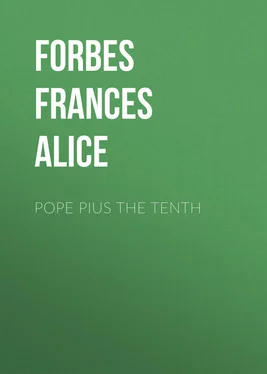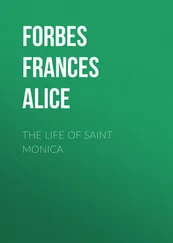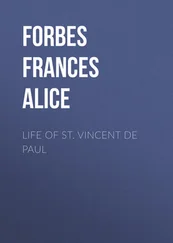Frances Forbes - Pope Pius the Tenth
Здесь есть возможность читать онлайн «Frances Forbes - Pope Pius the Tenth» — ознакомительный отрывок электронной книги совершенно бесплатно, а после прочтения отрывка купить полную версию. В некоторых случаях можно слушать аудио, скачать через торрент в формате fb2 и присутствует краткое содержание. Жанр: foreign_antique, foreign_prose, на английском языке. Описание произведения, (предисловие) а так же отзывы посетителей доступны на портале библиотеки ЛибКат.
- Название:Pope Pius the Tenth
- Автор:
- Жанр:
- Год:неизвестен
- ISBN:нет данных
- Рейтинг книги:5 / 5. Голосов: 1
-
Избранное:Добавить в избранное
- Отзывы:
-
Ваша оценка:
- 100
- 1
- 2
- 3
- 4
- 5
Pope Pius the Tenth: краткое содержание, описание и аннотация
Предлагаем к чтению аннотацию, описание, краткое содержание или предисловие (зависит от того, что написал сам автор книги «Pope Pius the Tenth»). Если вы не нашли необходимую информацию о книге — напишите в комментариях, мы постараемся отыскать её.
Pope Pius the Tenth — читать онлайн ознакомительный отрывок
Ниже представлен текст книги, разбитый по страницам. Система сохранения места последней прочитанной страницы, позволяет с удобством читать онлайн бесплатно книгу «Pope Pius the Tenth», без необходимости каждый раз заново искать на чём Вы остановились. Поставьте закладку, и сможете в любой момент перейти на страницу, на которой закончили чтение.
Интервал:
Закладка:
An autumn mist lay like a veil over the familiar landscape as the young man drove along the road which led from Riese to Castelfranco. The horse trotted swiftly, yet the way had never seemed so long. How often had he tramped it in the old days through dust and mud and snow, barefoot to save the shoes that were such a heavy item of expense in the Sarto family. And it was the thought of the day which at last had dawned, a day that seemed then so far away and so impossible, which had been the inspiration and the strength of that life of hardships, making everything easy to bear. The supreme happiness that now possessed him blotted out all the past. The first glimpse of the ivied walls of Castelfranco made his heart beat almost to suffocation. "To-day I shall be a priest," was the one thought that possessed him; and when, a little later, he knelt at the altar of the cathedral where he had so often prayed as a child, to receive the sacred laying-on of hands, it seemed to him as if earth had nothing more to give.
On the following day the newly-made priest sang his first Mass in the parish church of Riese. Who shall describe the joy of his mother as that beloved voice, clear and resonant as it remained even to old age, yet tremulous with the joy and fear of the moment, pronounced the words of the great Mystery? The Mass ended, the congregation flocked to kiss the hands of the young priest whom they had known and loved from childhood – hands that had touched to-day for the first time the Body of the Lord. To say that it was a feast day in Riese but feebly expresses the general jubilation.
A few days later Don Giuseppe received a letter announcing his destination. The Bishop of Treviso had appointed him curate to Don Antonio Costantini, the parish priest of Tombolo.
II
CURATE AND PARISH PRIEST
The village of Tombolo, in the province of Padua and the diocese of Treviso, is surrounded by hilly and well-wooded country, watered by the tributary streams of the Brenta. The parish church, St. Andrew's, stands in the centre of the little township. Tombolo boasts of no commercial industries; it is a pastoral country, and the greater part of the population is occupied in dairy farming and the rearing of cattle. The people have clearly marked characteristics; strong and robust in build, hardened to sun, rain, and wind, rough-voiced and somewhat ungentle in manner, they have, nevertheless, good hearts and are in their own way religious.
But the Tombolani have one vice – or had when Don Giuseppe became; their curate. They swore systematically and profusely at everything, at each other, and at the world at large. "No offence is intended to Almighty God," they explained ingenuously to the horrified young priest. "He certainly understands. Just go to market, and try to sell your beasts and your grain with a 'please' and a 'thank you,' and you will see what you will get!"
There may have been some truth in this; and intention, no doubt, goes a long way; but the argument did not satisfy Don Giuseppe. For the moment he dropped the subject, but he had not done with it.
The rector of the parish, Don Antonio Costantini, was habitually ailing. Devoted to his people and wholly desirous to do them good, his ill-health was a constant impediment. He had many tastes in common with his curate, notably the love of music and of biblical and patristic studies. He soon learnt to look upon Don Giuseppe as a son, and highly appreciated his good qualities.
"They have sent me a young man as curate," he wrote to a friend, "with orders to form him to the duties of a parish priest. I assure you it is likely to be the other way about. He is so zealous, so full of common sense and other precious gifts that I could find much to learn from him. Some day he will wear the mitre – of that I am certain – and afterwards? Who knows?"
The good rector nevertheless did his best to fulfil his commission. "Don Bepi," he would say to his young curate, "I did not quite like this or that in your last sermon." When the church was empty he would make Don Bepi go into the pulpit and preach, criticizing and commenting the while both on matter and method; comments well worth having, for Don Antonio was a man of wide learning and an excellent theologian. Meanwhile Don Bepi, whose sermons were already becoming famous throughout the countryside for their zeal and eloquence, would listen humbly and promise to try to do better.
The income of the young curate was next to nothing, for Tombolo was a very poor parish; but he had not been used to luxury. He had planned his priestly life before his ordination, and was busy carrying out the scheme. To study deeply in order to fit himself more fully for preaching; to do as much good as was possible in the confessional and in the pulpit; to help his people both materially and morally, to visit the sick, to succour the poor and to instruct the ignorant – such was the programme, and with all the vigour of his soul he threw himself into the work.
The widowed niece of Don Antonio who kept house for her uncle used to see a light burning in the window of Don Giuseppe's poor lodging the last thing at night and the first thing in the morning.
"Do you never go to bed, Don Bepi?" she asked at breakfast one day, for the curate took his meals at the rectory.
Don Bepi laughed. "I study a good deal," he replied. He confessed later that he slept for four hours, and found it quite sufficient for his needs.
"He was as thin as a rake," said the good lady when pressed in after-life for reminiscences, "for he scarcely ate enough to keep body and soul together, and was never off his feet."
In the morning he would often ring the church bell for Mass, in order not to disturb the sacristan. Then he would go to fetch Don Antonio, having prepared for him all that was needed. Sometimes he would find his chief unwell and unable to rise.
"What is the matter?" he would ask in his cheery way – "another bad night?"
"I am afraid I cannot get up," would be the plaintive answer.
"Don't try to; stay quiet, and do not worry yourself I will see to everything," the cheery voice would continue.
"But you have already one sermon to preach to-day, my Bepi."
"What of that? I will preach two."
During the days of sickness Don Giuseppe, as well as doing double duty, would himself nurse the poor invalid. How he managed it was known to himself alone.
He had not forgotten – there was no chance of forgetting – the deplorable language of his parishioners. The curate mixed with them as much as he could, making friends especially with the young men and the boys. He interested himself in their work and in their play, treating them with such a spirit of friendly comradeship that they would crowd to talk to him whenever he appeared. One day some of them lamented that they could neither read nor write.
"Let us start a night school," proposed Don Bepi, "and I will teach you."
"It would be too difficult," objected another; "some of us know a little, some less, and others nothing at all."
"What of that?" replied the priest. "We will have two classes-those who know something, and those who know nothing. We will get the schoolmaster to take the upper class, and I will teach the alphabet."
"Why shouldn't he teach the alphabet?" protested a loyal admirer of
Don Giuseppe.
Bepi laughed. "The alphabet is hard work," he answered, "I had rather keep it."
"But we can't take up your time like that for nothing," declared another. "What can we do for you in return?"
"Stop swearing," answered Bepi promptly, "and I shall then be more than repaid."
The school of singing made rapid progress in his hands. Don Antonio, who, like his curate, was an ardent lover of Gregorian music, warmly seconded all his efforts. The somewhat unmelodious, if extremely powerful, vocalization of the village choir became quiet and prayerful under his tuition. If one of the acolytes showed signs of a vocation to the priesthood, Don Giuseppe would teach him privately until he knew enough to go up for examination at the diocesan seminary.
Читать дальшеИнтервал:
Закладка:
Похожие книги на «Pope Pius the Tenth»
Представляем Вашему вниманию похожие книги на «Pope Pius the Tenth» списком для выбора. Мы отобрали схожую по названию и смыслу литературу в надежде предоставить читателям больше вариантов отыскать новые, интересные, ещё непрочитанные произведения.
Обсуждение, отзывы о книге «Pope Pius the Tenth» и просто собственные мнения читателей. Оставьте ваши комментарии, напишите, что Вы думаете о произведении, его смысле или главных героях. Укажите что конкретно понравилось, а что нет, и почему Вы так считаете.












